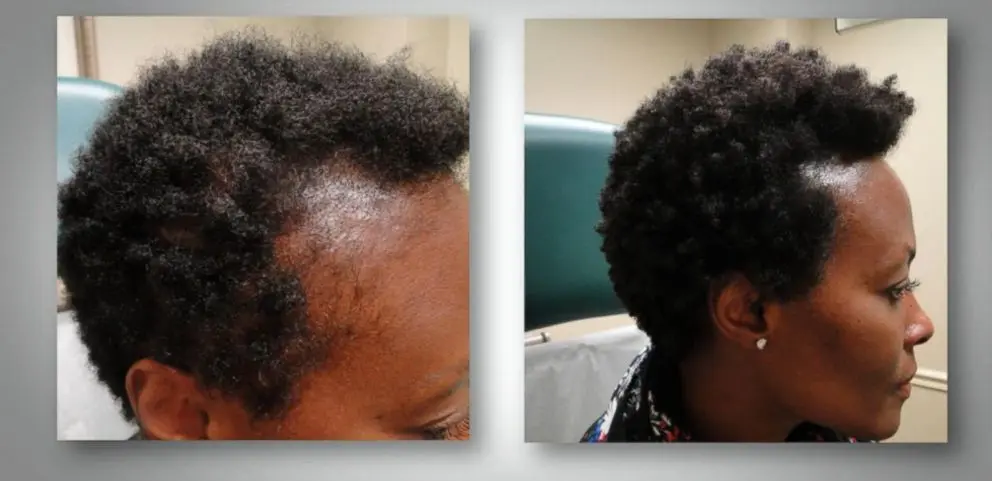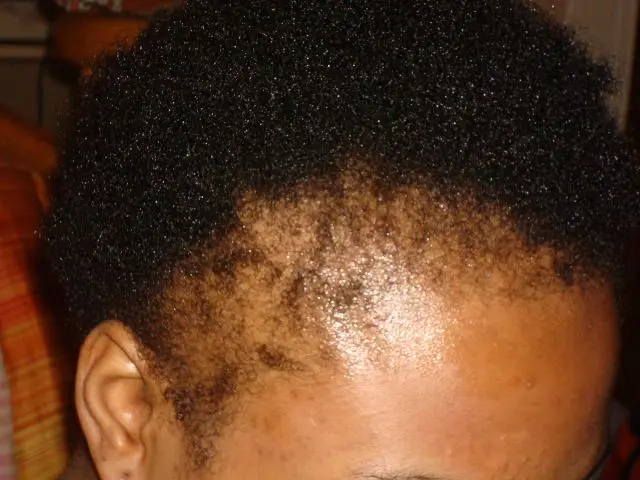A hair transplant on black female patients can restore hair and confidence. At Trichogenics, founded by Dr. Asi Peretz and Dr. Eric Peretz, every procedure is done by doctors in our clinics in Greece and Israel. We focus on safe methods, natural results, and long-term growth for women who need advanced care.
Key Takeaways
- An African American female hair transplant requires specialized techniques to handle curl patterns, donor density, and scalp health for natural results.
- Trichogenics offers doctor-performed FUE and FUT procedures in Greece and Israel, providing safe alternatives to unregulated clinics in Turkey.
- Costs for a hair transplant on black female patients vary by graft count, method, and individual needs, but transparent pricing and medical oversight ensure value and safety.
- Proper preparation, careful post operative care, and follow-up visits support long-lasting growth and help avoid complications such as visible scarring or poor graft survival.
- Patients can expect permanent transplanted hair with full growth visible within 12 to 18 months when procedures are performed by experienced surgeons.
Understanding Hair Loss in Black Women
Hair loss in Black women is common but often follows patterns that differ from other groups. Early signs may include thinning edges, small bald spots, or an itchy scalp.
Conditions such as central centrifugal cicatricial alopecia (CCCA), traction alopecia, and hormonal imbalance are frequent causes. These problems can damage the hair follicle and make treatment more complex if not addressed quickly.
Several factors increase the risk of loss in African Americans and hair loss in African women:
- Tight hairstyles: Braids, weaves, or extensions create constant tension on the scalp.
- Chemical treatments: Relaxers and harsh dyes weaken the hair shaft and follicle.
- Heat styling: Frequent use of hot tools can dry the scalp and break hair.
- Medical conditions: Thyroid disease, anemia, or autoimmune disorders may trigger shedding.
- Family history: Genetics can lead to early thinning or patterned baldness.
Women suffering from hair loss should seek a professional diagnosis. A doctor can identify the type of hair loss and recommend safe treatments, including medical therapy or a hair transplant surgery when needed.
Early care helps preserve donor hair and improves long-term results for future procedures.
Early diagnosis is important. Women suffering from hair loss should meet with a specialist to find the cause and learn if a hair transplant surgery is the best choice.
Hair Loss Patterns in African Americans

Loss in African Americans often shows unique patterns that require careful diagnosis.
Many patients experience thinning at the crown or along the hairline, while others develop patchy bald spots. Hair loss in African women may result from genetics, long-term use of chemical relaxers, or tight hairstyles.
Early treatment is important because scarring conditions like CCCA can damage the hair follicle and limit future growth.
Key factors linked to hair loss include:
- Repeated tension from braids, weaves, or extensions.
- Chemical straightening or frequent heat styling.
- Hormonal changes or autoimmune conditions.
Recognizing these risks helps doctors create the right plan before recommending a hair transplant surgery.
Best Hair Transplant Options and Surgeons
The main techniques for a hair transplant for black females are follicular unit extraction (FUE) and follicular unit transplantation (FUT).
- FUE hair transplant takes individual hair units from the donor area and does not leave a linear scar.
- FUT hair transplant removes a strip of scalp and can treat larger areas but may leave a small scar.
For an African American female hair transplant, FUE is often the better choice. It protects curl patterns and allows precise placement in each recipient site for natural looking results.
At Trichogenics, Dr. Asi Peretz and Dr. Eric Peretz perform all surgical procedures. They plan each step to match the curl and direction of your hair. This personal care gives better density and a natural appearance.
Some people look to Turkey for lower prices, but we warn against it. Turkey has many clinics with little regulation. Patients risk infection, poor growth, and results that look unnatural.
Our clinics in Greece and Israel follow strict medical standards and provide doctor-led treatments you can trust.
Treatment Options for African American Patients
Women looking for options for African American hair restoration have several safe choices. A consultation with Trichogenics helps identify the best path based on the type of hair loss and scalp condition.
Common treatment options include:
- FUE hair transplant for precise placement and minimal scarring.
- FUT hair transplant for larger graft numbers when donor hair allows.
- Non-surgical treatments such as PRP therapy or medical hair loss treatments for early stages.
Our doctors explain each choice and guide patients toward the method that offers the best long-term outcome. Every plan is tailored to protect curl patterns, ensure healthy growth, and deliver natural looking results.
Cost and Pricing Factors
@trichogenics How much does a hair transplant cost? And what is the right amount to pay for it? Dr Asi Peretz explains.#minoxidil #trichogenics #hairloss #hairlossremedy #hairlosssolutions #hairfall #hairfallsolution #hairtransplant #hairtransplantturkey #hairtransplantgreece #fyp #hairtransplantcost #hairtransplantsurgery
♬ original sound - Trichogenics
The hair transplant on black female price depends on the number of grafts, the method used, and the size of the bald area. Patients often ask, How much does a hair transplant cost for a black woman? Costs vary, but key factors include:
- Size of the thinning area and graft count.
- FUE or FUT technique.
- Any extra treatments, such as platelet-rich plasma (PRP) therapy.
At Trichogenics, pricing is clear and based on medical needs. We provide safe care and fair costs, unlike unregulated clinics in Turkey.
Before and After Results
Many people want to see hair transplant on black female before and after photos. These photos show how new hair can blend with natural curls and density.
Growth usually starts three to four months after surgery. Full results appear within 12 to 18 months. Patients often ask, How long do hair transplants last for females? Transplanted hair is permanent because it comes from areas that resist hair loss.
Another question is, What happens 10 years after a hair transplant? The transplanted hair continues to grow for life. Some natural hair may thin over time, but the transplanted grafts remain.
Preparing for Surgery
Good planning is key for a successful hair transplant for black women. During your visit, doctors check donor hair, scalp health, and curl pattern to plan the surgery. Each recipient site is marked to create a natural look.
Before surgery you should:
- Avoid harsh chemicals and stop using tight braids.
- Do not smoke and limit alcohol.
- Follow all instructions from the clinic to help healing.
If you travel for treatment, choose Greece or Israel for safe care and doctor supervision.
Recovery and Aftercare
Most hair transplant patients return to normal activities within a week. Early recovery time may include mild swelling, small scabs, and redness.
Follow these post operative care steps:
- Keep the scalp clean and follow doctor instructions.
- Take prescribed medicine to reduce swelling and prevent infection.
- Avoid heavy exercise, heat, and friction during the first days of the recovery process.
Soft hats can be worn after a few days if they do not rub against the grafts. Regular checkups at Trichogenics help ensure each recipient site heals well and supports strong growth.
Achieving Natural-Looking Results
A successful hair transplant for African American women matches the curl pattern and natural direction of the hair. Surgeons at Trichogenics use advanced tools to place each graft at the right angle for seamless results.
To keep natural looking results, patients should:
- Use gentle styling and avoid harsh chemicals.
- Wear low-tension hairstyles to protect new grafts.
- Visit the clinic for follow-ups to track growth.
Our careful planning and doctor-led approach give women from all ethnic groups a natural hairline and lasting growth.
Final Thoughts and Next Steps
A safe and successful African American hair transplant requires expert care and medical standards. Trichogenics, led by Dr. Asi Peretz and Dr. Eric Peretz, offers advanced hair transplant surgery in Greece and Israel. We use follicular unit extraction FUE and follicular unit transplantation FUT to help women restore their hair with confidence.
Avoid risky trips to Turkey where weak regulations can lead to poor results. Choose Trichogenics for proven safety, experienced doctors, and natural growth that lasts for life.
Why Choose Trichogenics?

All procedures are performed only by doctors
The uniqueness of Trichogenics lies in its strict medical process—only certified doctors perform every transplant. No technicians or unqualified assistants are involved. Choosing a clinic with proven experience in hair transplants can make all the difference.
Meet Dr. Asi and Dr. Eric Peretz
The two doctors leading Trichogenics—Dr. Asi Peretz and Dr. Eric Peretz—are recognized leaders in the field. Their extensive experience, attention to detail, and focus on natural results make Trichogenics the best choice.
Celebrity Hair Transplants
Who has undergone the procedure at Trichogenics? The answer is clear: a safe, professional clinic that delivers results that look great even under camera lights.
Contact Trichogenics today to schedule a personal consultation and get a clear, doctor-led plan for your hair restoration.



